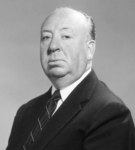
The Counter-Balance Strategy
The first quality of a General-in-Chief is to have a cool head which receives exact impressions of things, which never gets heated, which never allows itself to be dazzled, or intoxicated, by good or bad news. The successive simultaneous sensations which he receives in the course of a day must be classified, and must occupy the correct places they merit to fill, because common sense and reason are the results of the comparison of a number of sensations each equally well considered. There are certain men who, on account of their moral and physical constitution, paint mental pictures out of everything: however exalted be their reason, their will, their courage, and whatever good qualities they may possess, nature has not fitted them to command armies, nor to direct great operations of war. –
Napoleon Bonaparte
It is easy to control your emotions when you are following your routine. Since there is no surprise in your routine, you can use your calm rationality well, but when you’re in a situation that is chaotic, your strength of mind and your calm will be tested. In this chapter, Greene tells us about the important skill of being in control when everyone else around us is not, in thinking long-term rather thinking short-term, in not being oriented by results but by strategy. These are the qualities of the great generals and leaders of history from Napoleon Bonaparte to Ulysses Grant. These leaders did not merely possess good qualities such as intelligence, they possessed a self-discipline that was rare, and if you want to be victorious in your daily battles and petty feuds, you must possess this self-discipline yourself.
But it does not come without sacrifice. Greene outlines several different ways of achieving it, and most importantly, this is a trait does not come by attaining more knowledge or expertise, but by practice. Push yourself into unfamiliar situations and you will gain courage.
A great part of courage is the courage of having done the thing before.
RalphWaldo Emerson
George S. Patton who came from a highly distinguished military family was at first terrified of the prospect of war, and in his first battle, what he feared the most happened. He lost his nerve and his body deserted him. He did not have the psychological strength of fighting against his own fear. His legs turned to jelly and he fell down. But as he looked towards the sky, he saw his dead ancestors, decorated in military uniform, looking down at him scornfully and demanding that he rise up and join them. This gave him the strength to face his fears and he joined his army in the fight. He was soon shot in the leg and could not continue, but this battle was not his last. The courage he was able to muster by exposing himself to the most extreme circumstances better prepared him for the next battle where he fought with less fear.
What we learn from Patton is that fear can be crippling, but also empowering. When you are exposed to chaos, your imagination will run wild, and fear will settle in. The way to combat this fear is not run away from it but to confront it directly. By putting yourself in difficult and unpredictable situations, you grow in confidence, and your fear is subdued. The other lesson is that values such as family honor are very powerful motivators. When you feel responsible for the well-being of a tribe or group, you will be armed with great strength to confront the unknown.
Alfred Hitchcock appeared as a smiling, sleepy Buddha to the actors he worked with. They could not understand his calm demeanor during shoots. He would sometimes doze off, and he never got involved in the petty disputes. Hitchcock was a perfectionist, he had a clear vision of what the movie would like. Of course, he allowed some creative freedom to his writers, but the final product was predominantly his. He had learned that there was only one way to relieve himself of the frustration of dealing with internal squabbles that took place, and that was to prepare beforehand.
Hitchcock did not appear on set and leave things to chance. He had already envisioned everything to its last detail beforehand, and the actual filming was simply the implementation of his plan. It did not bother him if he some arguments broke out every now and then because he was confident about the final product. He treated those around him like children who’s foolishness he gracefully suffered, until the end result was as planned.
Greene suggests you heed this advice. If your colleagues or friends or family members are pressing you to do something against your will, or their anxieties and petty concerns are being projected at you, smile and play along, but do not allow yourself to be emotionally affected. Instead, treat them the way Hitchcock did his cast, treat them like children who will inevitably have their fits and outbursts, and then calmly do whatever it is you had planned. But to have this confidence, you must already have done the hard work yourself, and thought of everything. Confidence does not come from having an empty hand, it comes through disciplined work and attention to detail. As you take greater control of what you do, the social interactions that would have moved you off balance before will have no affect on you.
If you’re interested in exploring the darker or hidden parts of human psychology that most people ignore, check out The Dichotomy of the Self.